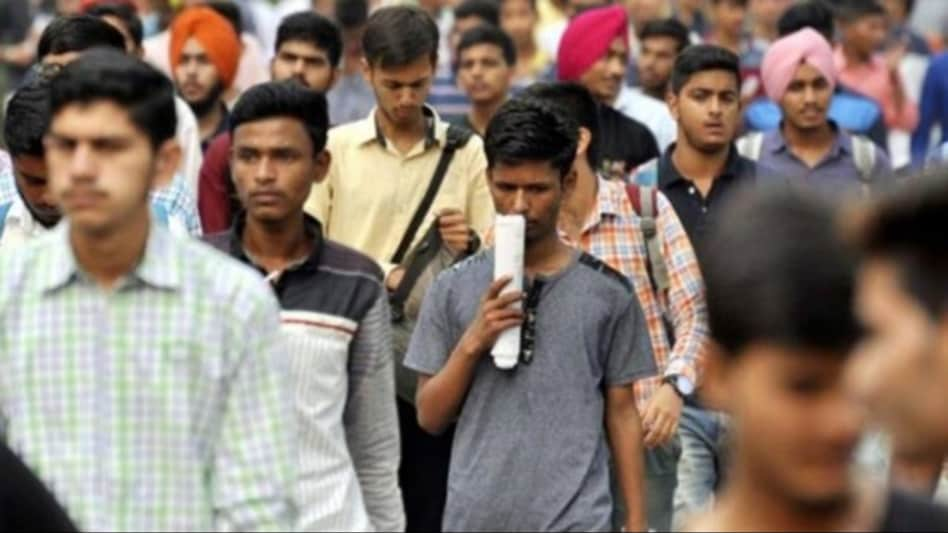About 62 per cent of respondents, surveyed in villages, towns, and cities, expressed that securing employment has become increasingly challenging.
A majority of both male (65%) and female (59%) respondents expressed concerns about the tough job market. Only 12% felt that job opportunities have increased.
Lok Sabha polls 2024: A recent survey by the Centre for Study of Developing Societies (CSDS) has revealed that unemployment and rising basic prices are the key issues for voters. About 62 per cent of respondents, surveyed in villages, towns, and cities, expressed that securing employment has become increasingly challenging. Of this, 65% of men and 59% of women thought that the job market has become tougher. Only 12 per cent of respondents said that job opportunities have increased.
On the question of accountability of lack of job opportunities, 21 per cent held the Centre accountable, 17 per cent attributed it to state governments, and 57 per cent believed both entities shared responsibility.
According to the CSDS survey, inflation is another reason crucial for voters. A significant 26 per cent of respondents attributed responsibility to Central Government policies. Notably, just 12 per cent reserved blame for their respective state governments while a substantial 56 per cent held both levels of governance accountable.
Furthermore, about 71 per cent reported detrimental effects on their financial status as reflected by increased commodity prices.
The Lokniti-CSDS Pre-Poll Survey 2024 evaluated feedback from a comprehensive sample of 10,019 respondents in 19 different states. This rigorous examination was methodically carried out in an extensive array of 400 distinct polling stations dispersed among the 100 Assembly Constituencies residing within the borders of equivalent Parliamentary Constituencies.
Earlier this month, an International Labour Organisation (ILO) report showed over 80% of India’s unemployed are young people. The percentage of young people with secondary education or higher among the unemployed increased from 35.2% in 2000 to 65.7% in 2022.
The India Employment Report 2024 noted that youth employment and underemployment increased between 2000 and 2019 but declined during the pandemic years. The study, released by Chief Economic Adviser V. Anantha Nageswaran, said educated youths have experienced much higher levels of unemployment in the country during the period.
The report said the slow transition to non-farm employment has reversed; women largely account for the increase in self-employment and unpaid family work; youth employment is of poorer quality than employment for adults, with a higher proportion of unpaid family work among youth than adults along with stagnant or declining wages and earnings.
“In 2022, the share of unemployed youths in the total unemployed population was 82.9 per cent. The share of educated youths among all unemployed people also increased, from 54.2 per cent in 2000 to 65.7 per cent in 2022. Among the educated (secondary level or higher) unemployed youths, women accounted for a larger share (76.7 per cent) than men (62.2 per cent). This indicates that the problem of unemployment in India has become increasingly concentrated among the youth, especially educated youths and women in urban areas,” the report highlighted.
While releasing the report, Nageswaran said it is not correct to think that for every social or economic problem, there needs to be a government intervention, adding that industry needs to hire more.
“We need to get out of that mindset. In the normal world, it is the commercial sector, those who engage in for-profit activity, who need to do the hiring,” Nageswaran said.
He noted that the government has taken several facilitative actions for employment including skill development initiatives along with National Education Policy (NEP), which he termed as “futuristic”, adding that it should not become hostage to political consideration.
Nageswaran said other government measures for employment include payment of employers’ contribution for new employees under the Employees’ Provident Fund Organisation (EPFO), Atmanirbhar Bharat Rozgar Yojana; and the new tax regime allowing for deductions of wages to employers and thus, “not favouring capital accumulation over employment generation”.










